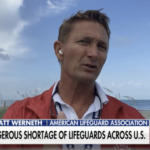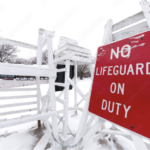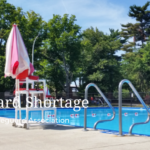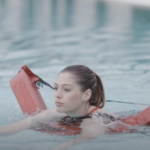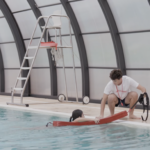Florida, with its stunning beaches and warm climate, is a popular destination for tourists and locals alike. With so many people flocking to the water, the state places a high priority on water safety. This is where Lifeguard training in Florida comes in, ensuring that those in charge of keeping swimmers safe are well-prepared and knowledgeable. In this article, we’ll take a closer look at Lifeguard training in Florida and what it takes to become a certified lifeguard.
Lifeguard Training Florida: Course Overview
The ALA offers a comprehensive lifeguard training course that covers all the essential skills and knowledge required to become a certified lifeguard. The course covers topics such as water rescue, first aid, CPR, AED, and emergency response. In addition, the ALA program’s skills reflect ECC science and findings from the United States Lifeguard Training Standards Coalition.
The course also includes a minimum of 29 hours of training, where students will learn various rescue techniques and practice their skills. The purpose of the ALA training program is to teach candidates the knowledge and skills needed to help prevent and respond to aquatic emergencies.
American Lifeguard Classes Program
Lifeguard classes are typically held over a period of several days. The course is designed to be intensive and challenging. The ALA program requires the participants to practice their skills both in and out of the water. You can find a full list of these swimming, rescue, and first aid skills. Upon completing the program, participants will obtain a Deep-Water Lifeguard certification titled Professional Lifeguard and First Aid and CPR/AED for the Professional Rescuer.
The Importance of Lifeguard Training in Florida
The importance of Lifeguard training in Florida cannot be overstated. Lifeguards are responsible for the safety of those in and around the water, and their quick thinking and actions can make all the difference in an emergency. In Florida, where water-related activities are a major part of daily life, it is crucial that lifeguards have the proper training to handle any situation.
Lifeguard Training in Florida: What to Expect
Lifeguard training in Florida offered by the American Lifeguard Association is comprehensive, covering everything from water safety and rescue techniques to first aid and CPR. The training is designed to help ensure that lifeguards have the knowledge and skills they need to handle a wide range of emergencies, from minor cuts and bruises to life-threatening situations.
Why Lifeguard Training is Essential
Becoming a certified lifeguard in Florida is an important responsibility, and it requires extensive training and preparation. The ALA is a trusted and reputable national organization that offers comprehensive lifeguard training courses throughout the state of Florida.
By completing a lifeguard training course and becoming certified, you’ll gain the skills and knowledge necessary to help protect and save lives in the water. Whether you’re looking to become a lifeguard as a career or simply to volunteer at your local pool or beach, lifeguard training is an essential investment in your own safety and the safety of others.
The American Lifeguard Association offers lifeguard training courses in Florida. Topics covered in the training include:
- Water safety and rescue techniques
- First aid and CPR
- Emergency response procedures
- Lifeguard equipment and facilities
- Communication and teamwork
How to Get Certified
You must complete a lifeguard training course in order to become a certified lifeguard in Florida. As part of the full training program, you will be tested on water rescue, first aid, CPR, and AED skills.
Lifeguard Recertification: Keeping Your Certification Current
After you’ve become a certified lifeguard, it’s important to keep your certification current through regular recertification courses. Lifeguard recertification courses are typically held every two years and are designed to help you maintain your skills and knowledge in water rescue, first aid, and emergency response.
ALA offers recertification courses throughout the state of Florida, and it’s important to stay up-to-date on the latest lifeguard techniques and procedures to ensure that you’re prepared for any emergency situation.
Why Choose The American Lifeguard Association for Your Training?
The American Lifeguard Association (ALA) is a nationally recognized organization that provides lifeguard training and certification. The ALA’s courses are designed to meet the highest standards of safety and are recognized by many employers and organizations across the country. ALA also requires employers to meet the new Model Aquatic Health Code (MAHC) requirement to conduct pre-service evaluations and in-service training.
Under the Fair Labor Standards Act, the U.S. Department of Labor the federal Authority having jurisdiction (AHJ) has determined that the American Lifeguard Association meets the national standards for lifeguard training and certification. The American Lifeguard Association is one of a handful of national training entities listed by the United States Government to meet these federal requirements. As a result of this, the American Lifeguard Association meets the national requirements for lifeguard training and certification in all 50 states, and District of Columbia, and U.S. territories.
In Florida, the ALA offers a comprehensive lifeguard training program that covers all the necessary topics and skills. The training program has over 30 years of experience.
The American Lifeguard Association® has been listed over the years with the CDC Healthy Swimming website. In addition, the U.S. Department of Labor and the U.S. General Service Administration (GSA) has determined that the American Lifeguard Association offers lifeguard certification programs similar to those provided by the American Red Cross.
If you’re interested in becoming a lifeguard in Florida, it’s important to know the requirements for lifeguard training and certification. The American Lifeguard Association (ALA) is one of the most recognized organizations for lifeguard certification in the state of Florida.
Conclusion
Lifeguard training is essential for the safety of swimmers and others in and around the water. With comprehensive training and lifeguard certification from a reputable organization like the American Lifeguard Association, lifeguards can be confident in their abilities to handle any emergency and keep those in their care safe.
FAQs
Who can become a lifeguard in Florida?
Anyone who is 15 years old or older can enroll in a lifeguard training program in Florida, but US Labor Laws require you to be at least 15 years old to work at a pool, water park, or lake, and 16 years old at a beach.
Prerequisites: Minimum age: 15 years; Swim 300 yards continuously; Tread water for 2 minutes using only the legs; Complete a timed event within 1 minute 40 seconds by starting in the water swimming 20 yards surface dive to a depth of 7 to 10 feet to retrieve a 10-pound object return to the surface and swim 20 yards on the back to return to the starting point exit the water without using steps or a ladder. Participants who successfully complete the Lifeguarding course receive an American Lifeguard certificate for Lifeguarding/First Aid/CPR/AED valid for 2 years.
What is the training process to become a lifeguard in Florida?
To become a lifeguard in Florida, you must complete a certified lifeguard training program. The first step toward becoming a lifeguard is to complete a lifeguard training and certification program. You can choose from a variety of training options with the American Lifeguard Association. As an alternative to traditional in-person training, blended learning offers more flexibility. After completing the course, you will receive a two-year certification in lifeguarding, first aid, CPR, and AED.
How long does it take to complete the lifeguard training program?
The length of the training program can vary, but it typically takes around 25 to 30 hours to complete. This can be spread out over several days or completed in a single week. If eLearning is used or if onsite training is conducted entirely, multi-hour courses are typically scheduled for a long weekend or over several days.
What topics are covered in the lifeguard training program?
The training program covers a range of topics, including water safety, rescue techniques, CPR and first aid, and lifeguarding operations. Participants will also learn about the signs and symptoms of drowning, as well as how to prevent and respond to aquatic emergencies.


